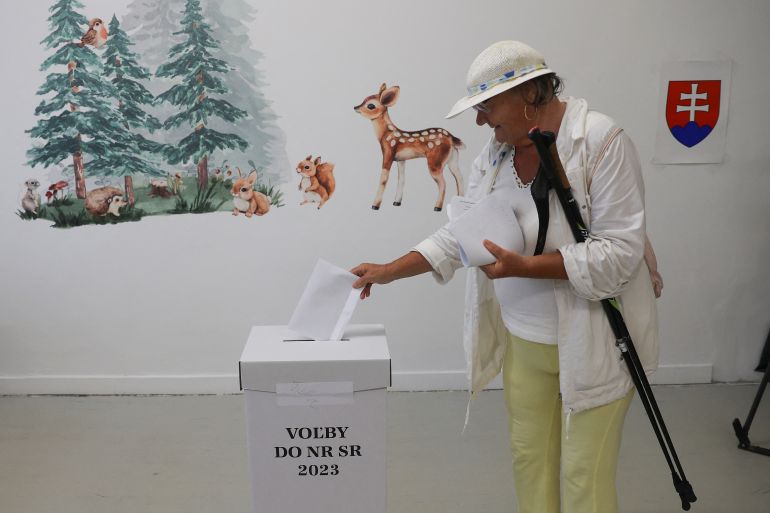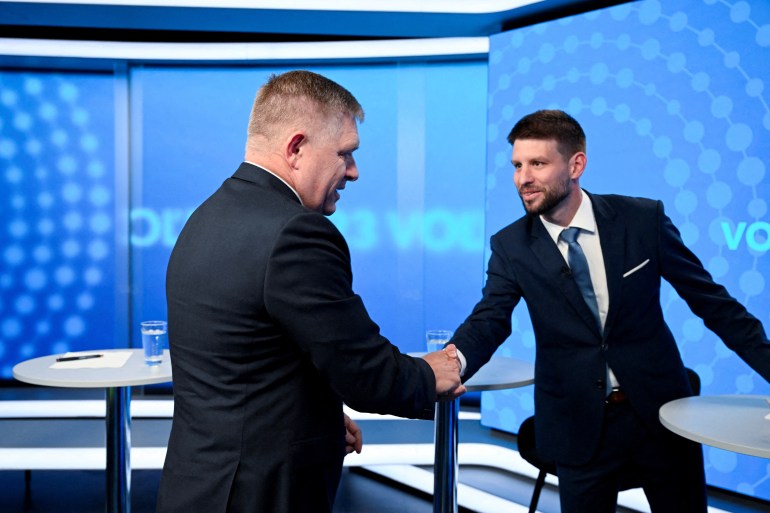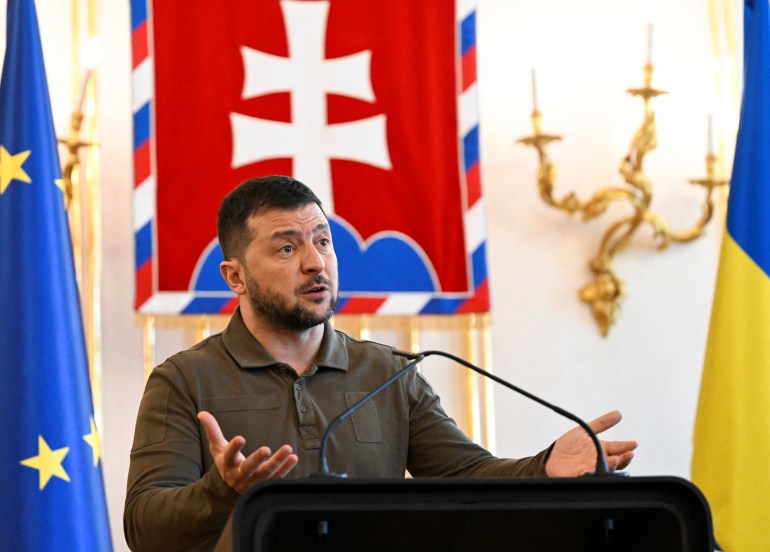Slovaks vote between pro-Russian ex-PM and pro-Western liberals
Voting has begun in a closely contested election with support for Ukraine’s defence against Russia’s invasion a key focal point.

Slovaks are voting in a closely contested parliamentary election between left-wing former Prime Minister Robert Fico, who has pledged to end military aid for neighbouring Ukraine, and pro-Western liberals.
Final opinion polls showed the two parties in a dead heat, with the winner expected to get the first chance to try to form a government to replace the caretaker administration running the country since May.
Keep reading
list of 4 itemsSlovakia delivers first four Soviet-era MiG-29 jets to Ukraine
Slovakia joins countries banning Ukrainian agriculture imports
Slovakia swears in interim government of technocrats after crisis
A government led by Fico would mean Slovakia, a country of 5.5 million, joining Hungary as European Union countries challenging the bloc’s consensus support for Ukraine, just as the EU looks to shore up solidarity in opposing Russia’s invasion.
It would also add to a bloc of eastern former communist states with governments publicly hostile to liberalism.
A Progresivne Slovensko (Progressive Slovakia, PS) government would stay the course on foreign policy, keeping Slovakia’s strong backing for Ukraine and putting the country in a pro-integration and liberal camp in the EU on issues such as majority voting to make the bloc more flexible, green policies and LGBTQ rights.
Neither Fico’s SMER-SSD (Direction-Slovak Social Democracy) nor the PS, led by European Parliament Vice President Michal Simecka, are expected to win a majority, meaning the future government is likely to depend on results for half a dozen smaller parties, from libertarians to far-right extremists.
The moderate-left Hlas (Voice) of Peter Pellegrini, an ex-SMER-SSD member and prime minister from 2018-20, is seen coming third and may have the final say. He has kept his options open but said this week his party was closer to Fico.

Rising pro-Russia sentiment
Fico has ridden on dissatisfaction with a bickering centre-right coalition whose government collapsed last year, triggering this election a half-year early.
Fico’s pro-Russian views follow moods in Slovak society, traditionally relatively warm on Russia. Pro-Russian narratives and disinformation on social networks have amplified the sentiment.
Fico has pledged to end military supplies to Ukraine and to strive for peace talks. This rhetoric echoes that of Hungary’s leader, Viktor Orban, but is rejected by Ukraine and its allies, who say this would only encourage Russia.
He has also criticised sanctions on Russia and defended national veto powers in the EU. But Fico was also a pragmatic leader in the past, which foreign diplomats and analysts say could tame his foreign policy turn.
Observers also say Slovakia – with the eurozone’s biggest budget deficit of nearly 7 percent of gross domestic product this year – is in need of EU modernisation and recovery funds. Any government would, therefore, think twice before going into conflict with Brussels over issues such as the rule of law.
Polling stations opened at 7am (05:00 GMT) on Saturday and voting ends at 10pm (20:00 GMT). Exit polls will be released after polls close, and results will become available within hours.
